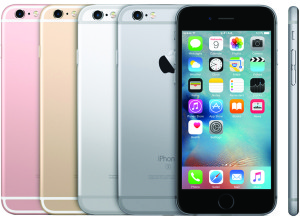 For some businesses and job roles, being in constant contact is paramount. It might be hard to stomach at first, but sales personnel, account executives, c-suite level employees, department heads, and many other positions are never really off the clock. In order to keep these positions tuned in, company-issued devices have often become a necessity. A generation ago, that meant laptops, then BlackBerrys, and recently it has turned to iPhones and iPads. But before you put in a large order of identical Apple products, consider the alternatives.
For some businesses and job roles, being in constant contact is paramount. It might be hard to stomach at first, but sales personnel, account executives, c-suite level employees, department heads, and many other positions are never really off the clock. In order to keep these positions tuned in, company-issued devices have often become a necessity. A generation ago, that meant laptops, then BlackBerrys, and recently it has turned to iPhones and iPads. But before you put in a large order of identical Apple products, consider the alternatives.
First, we can discount any product lines that for all intents and purposes are dead or on life support. That means BlackBerry and Microsoft phones are not options. If a platform is not in use by a massive consumer base, that means developers aren’t going to service it, which means anti-virus software and timely security updates are not available — not exactly a situation any organization wants to willingly put itself in.
The next manufacturer off the list is Samsung. Mobile devices that overheat and cause fires are bad, but the state of panic Samsung will be in for the next two years may affect its entire product line. Without the Galaxy Note line on the market, there isn’t a business-grade mobile device in their arsenal. Of course, there are a half dozen other Android platform manufacturers, but none of them should really be considered because their lunch is about to be stolen by…
Google. The only true alternative to a work-supplied iPhone or iPad is a device that was designed and manufactured under Google’s express care. Google’s Nexus line and new Pixel line of devices are about to dominate consumer markets. The first selling point is security. Nexus and Pixel devices are the first Android platform tools to offer security, firmware and software updates. Second, the Google ecosystem of services is software and web-based so users can collaborate efficiently and thoroughly across spreadsheets, documents, creative projects or simple communication. Finally, the Android platform is much smarter software. The Pixel line of phones is designed entirely around behavior-sensing bots, a.k.a. artificial intelligence. So users can find solutions and customized devices within moments of use.
Of course, major purchases are not solely informed by what product is the best; there is also the user. In the end, the Apple line of mobile devices has indoctrinated a generation of employees to be Apple evangelists. For the time being, you might be resigned to an Apple device line, but watch out. Your next major purchase may be a fleet of Android devices. ♦
Patrick Boberg is a central Iowa creative media specialist. Follow him on Twitter @PatBoBomb.


Leave a Reply